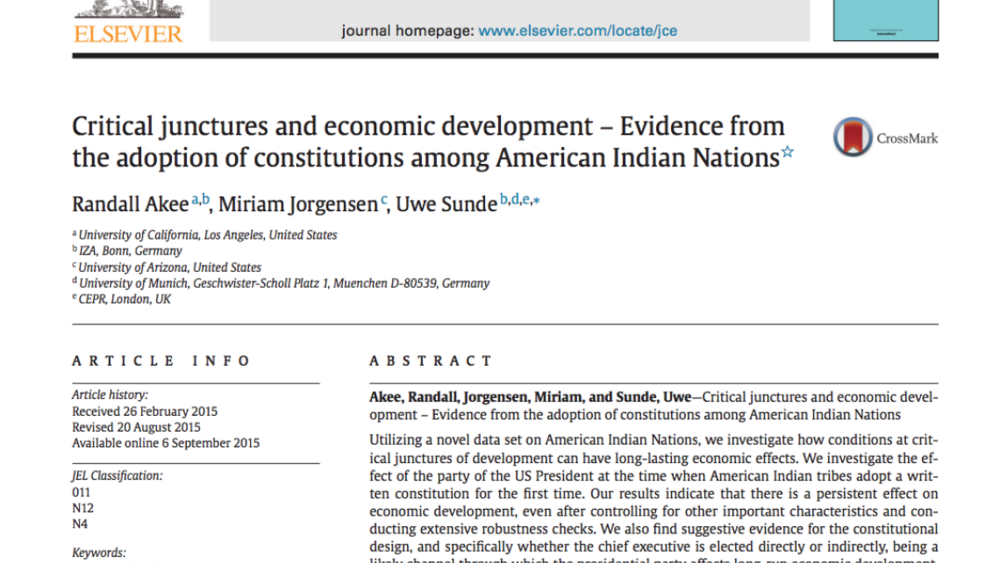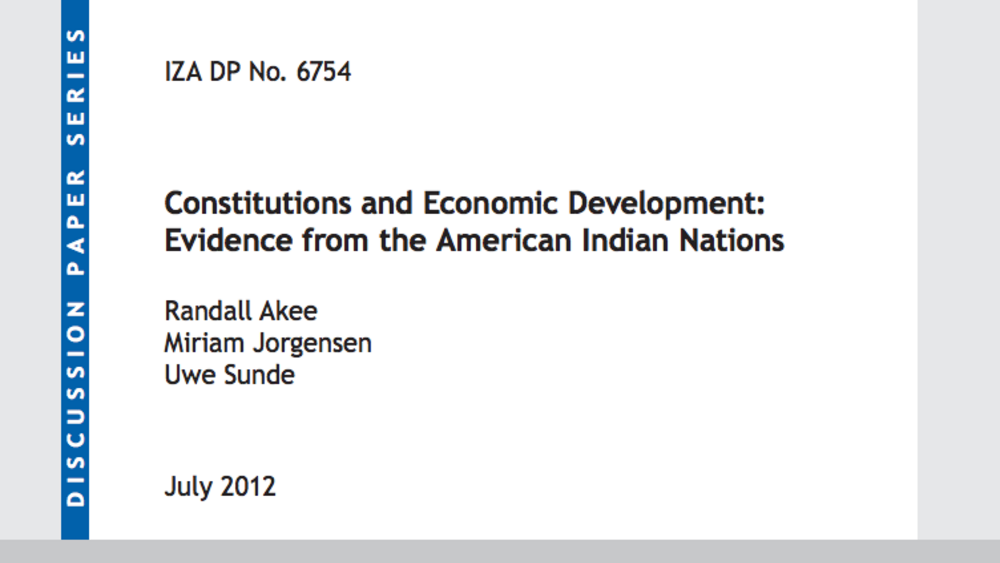Indigenous Governance Database
Uwe Sunde
Thumbnail or cover image

Critical junctures and economic development - evidence from the adoption of constitutions among American Indian nations
Utilizing a novel data set on American Indian Nations, we investigate how conditions at critical junctures of development can have long-lasting economic effects. We investigate the effect of the party of the US President at the time when American Indian tribes adopt a written constitution for the…
Image

Constitutions and Economic Development: Evidence from the American Indian Nations
This paper presents an empirical examination of economic and institutional development. Utilizing a novel data set on American Indian tribal nations we investigate how constitutional design affects economic development, while holding the broader legal and political environment fixed. Instrumental…
